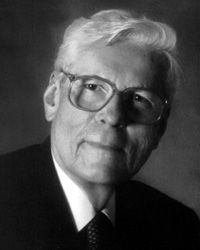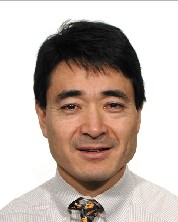 Born and raised in Maryland, ROBERT BOND WELCH, Med 1953, is the son of an Annapolis ophthalmologist and became a leader in that field in Maryland and internationally. Dr. Welch completed his pre-medical training at Princeton and obtained his MD degree from The Johns Hopkins University in 1953. He completed his internship and residency at the Wilmer Eye Institute. Over the next 40 years, Dr. Welch established himself as a leading figure in retinal care, clinical research, and training. At Wilmer, he co-directed the Wilmer Retina Service from 1959 to 1985, and he served as chairman of ophthalmology at the Greater Baltimore Medical Center from 1985 to 1991. He maintains a private practice in Baltimore and Annapolis. He has been active in the American Academy of Ophthalmology, the Macula Society, the Retina Society, and the American Board of Ophthalmology. Studies of pars planitis, sickle cell hemoglobin C disease, and intraocular Toxacara Canis are some of Dr. Welch’s clinical research interests. He was also the developer of improved “scleral buckle” surgical techniques. To many, Dr. Welch is best known as a teacher; he is past-president of the Wilmer Residents Association and is a current member of the Wilmer Advisory Council. His love of history is well-known as he is the author of The Wilmer Ophthalmological Institute, 1925–2000. He is also a tireless advocate of Johns Hopkins and was named a Distinguished Alumnus of The Johns Hopkins University in 2001.
Born and raised in Maryland, ROBERT BOND WELCH, Med 1953, is the son of an Annapolis ophthalmologist and became a leader in that field in Maryland and internationally. Dr. Welch completed his pre-medical training at Princeton and obtained his MD degree from The Johns Hopkins University in 1953. He completed his internship and residency at the Wilmer Eye Institute. Over the next 40 years, Dr. Welch established himself as a leading figure in retinal care, clinical research, and training. At Wilmer, he co-directed the Wilmer Retina Service from 1959 to 1985, and he served as chairman of ophthalmology at the Greater Baltimore Medical Center from 1985 to 1991. He maintains a private practice in Baltimore and Annapolis. He has been active in the American Academy of Ophthalmology, the Macula Society, the Retina Society, and the American Board of Ophthalmology. Studies of pars planitis, sickle cell hemoglobin C disease, and intraocular Toxacara Canis are some of Dr. Welch’s clinical research interests. He was also the developer of improved “scleral buckle” surgical techniques. To many, Dr. Welch is best known as a teacher; he is past-president of the Wilmer Residents Association and is a current member of the Wilmer Advisory Council. His love of history is well-known as he is the author of The Wilmer Ophthalmological Institute, 1925–2000. He is also a tireless advocate of Johns Hopkins and was named a Distinguished Alumnus of The Johns Hopkins University in 2001.
Robert Bond Welch, M.D. Professorship in Ophthalmology
School of Medicine
Ophthalmology
Established in 2006 to honor Dr. Robert Bond Welch, made possible by gifts from numerous donors
Held by James T. Handa
 JAMES T. HANDA, MD, is the Robert Bond Welch, M.D., Professor of Ophthalmology at the Wilmer Eye Institute. He specializes in medical and surgical management of complex vitreoretinal diseases such as age-related macular degeneration, diabetic retinopathy, retinal detachment, retinopathy of prematurity, and other pediatric retinal diseases. He also has expertise in intraocular oncology and manages patients with choroidal melanomas and metastatic tumors of the eye.
JAMES T. HANDA, MD, is the Robert Bond Welch, M.D., Professor of Ophthalmology at the Wilmer Eye Institute. He specializes in medical and surgical management of complex vitreoretinal diseases such as age-related macular degeneration, diabetic retinopathy, retinal detachment, retinopathy of prematurity, and other pediatric retinal diseases. He also has expertise in intraocular oncology and manages patients with choroidal melanomas and metastatic tumors of the eye.
Not only is he a highly skilled surgeon and clinician, but he also devotes significant effort to research related to the early causes of age-related macular degeneration using molecular pathological approaches to understand how the eye transforms from normal aging to early disease.
He has been funded by the National Eye Institute for the last 19 years, and he currently holds two R01 awards for his work in AMD. He has also been funded by the Thome Foundation, Research to Prevent Blindness, Fight for Sight, and the American Health Assistance Foundation. His other research focuses on surgical innovation using an integrated robotic surgical system. Dr. Handa is currently the Wilmer Eye Institute’s implanting surgeon for the Argus II retinal chip implant, which was recently approved by the FDA after Dr. Handa participated in the clinical trial leading to its approval.